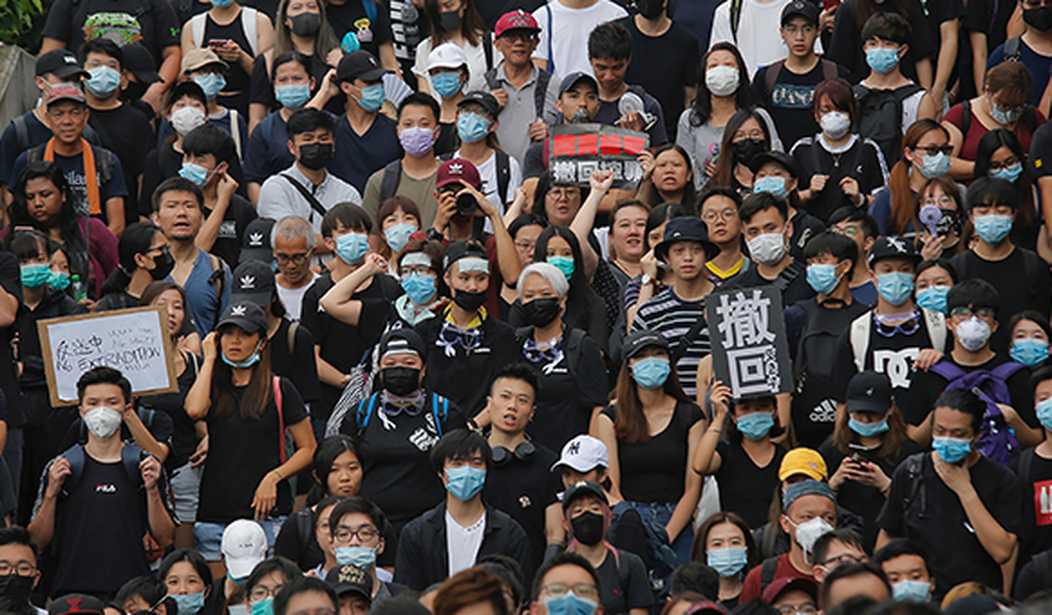In a bid to create a pro-democracy majority in the Hong Kong legislature this fall, over half a million Hong Kong people participated in unofficial primary elections this weekend.
“You can see the courage of the Hong Kong people in this...Hong Kongers have created another miracle,” said Au Nok-hin, a prominent organizer.
Elections for representatives in Hong Kong’s Legislative Council happen every four years. Scheduled for September, the next round will play a role in determining the future freedoms of Hong Kong. Democratic party hopefuls promise to utilize their power under the Hong Kong Basic Law, including authority to veto budget proposals, to ensure their demands are met.
Owen Chow, a candidate in the “resistance camp,” has put forward “Five Demands,” including police reform and pardon for convicted pro-democracy protestors.
Hong Kong Basic Law requires that the Chief Executive step down if legislators veto a substantial bill like the budget twice.
“I agree that, if my rating in pre-election polls falls short in securing the estimated number of seats that the pro-democracy camp is anticipated to win in each constituency, I will declare a halt to the election campaign,” he said in a statement signed in June alongside more than 30 other candidates.
Hong Kong people will officially nominate candidates to the Legislative Council on July 18. The primaries serve as a gauge for determining which contenders of diverse pro-democracy opposition parties have the best chance of winning seats in September.
Recommended
Organizers had expected only 170,000 voters to cast their votes at 250 polling stations across the city, expressing astonishment when the ballot count reached more than 600,000.
“A high turnout will send a very strong signal to the international community, that we Hong Kongers never give up,” said Sunny Cheung, one of many young activists.
Officials have warned that the crowd-funded election might constitute a violation of the National Security Law passed last month. On Friday, police raided the office of the Public Opinion Research Institute, one of the election’s co-organizers.
“Those who have organised, planned or participated in the primary election should be wary and avoid carelessly violating the law,” said Secretary for Constitutional and Mainland Affairs Erick Tsang.
The Hong Kong government announced on Monday that intended to conduct an investigation into alleged complaints that the vote “interfered with and manipulated the LCGE [Legislative Council General Election],” violated group gathering ordinances and facilitated privacy leaks.
In a press conference, Chief Executive Carrie Lam denounced the election. “There is no such thing as a primary,” she said. “If this so-called primary election’s purpose is to achieve the ultimately goal of… rejecting to, resisting every policy initiative of the Hong Kong SAR government, then it may fall into the category of subverting the state power.”
Even now, activists harbor concerns that the vote, while an example of the Hong Kong people’s dedication to freedom and government participation, may degrade into little more than a demonstration.
“They can arrest or disqualify any candidate they don’t like under the national security law without a proper reason,” Chow warned. Representatives who attempt to oppose the HK authorities’ agenda could face prosecution for subversion and disruption by unlawful means according to Article 22 of the National Security Law.
Beijing tries their every effort to halt the primary election of the pro-democracy camp. But the Hong Kong people will respond it with a firmer stance — we will exercise our freedom of expression to support our political representatives. Go VOTE! ???#HongKong pic.twitter.com/YgFzs2Oek5
— Nathan Law ??? ?? (@nathanlawkc) July 11, 2020

























Join the conversation as a VIP Member